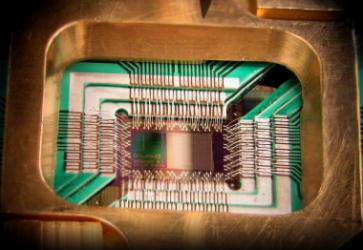
Keen to tap into the next big advance in computing technology, the Department of Science and Technology (DST) is planning to fund a project to develop quantum computers.
A quantum computer, still largely a theoretical entity, employs the principles of quantum mechanics to store information in ‘qubits’ instead of the typical ‘bits’ of 1 and 0.
Qubits work faster because of the way such circuits are designed, and their promise is that they can do intensive number-crunching tasks much more efficiently than the fastest comparable computers.
For instance, to sort a billion numbers, a quantum computer would require 3.5 million fewer steps than a traditional machine, and would find the solution in only 31,623 steps, says a Morgan Stanley analysis.
Solving other problems, many having to do with computing physics, becomes possible on quantum machines, the authors say, whereas they might never be possible on traditional computers.
Experts from across the country are expected to gather this month in Allahabad for a workshop to develop such a computer.
Internationally, Canada’s D-Wave Systems, is a pioneer in developing quantum computers and has sold machines to Lockheed Martin and Google.
Experts, however, say that ‘true quantum computers’ are still years away, and existing systems use principles of quantum computing to solve very limited problems.